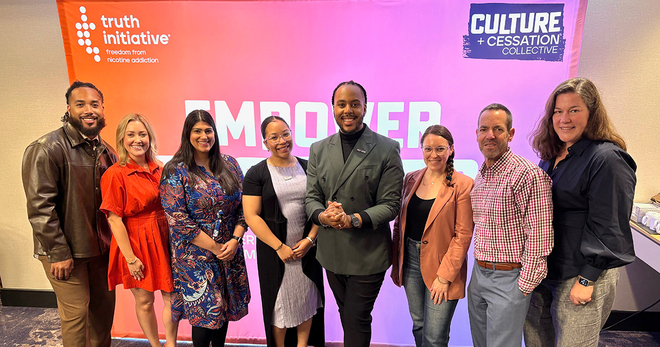3 reactions to FDA’s new plan for tobacco regulation
The U.S. Food and Drug Administration (FDA) recently made one of its biggest announcements about tobacco since it brought all tobacco products under its authority in 2016.
The agency declared a new path for tobacco regulation that would begin to look at requiring manufacturers to reduce nicotine in combustible products to nonaddictive levels. The FDA also announced that it will institute revised timelines for reviewing new products that amount to a four-year delay in fully regulating new combustible products, such as cigars and hookah, and a five-year delay in regulating e-cigarettes and other noncombustible tobacco products. In addition, the agency will solicit public input on the role of flavors, including menthol, in tobacco products and consider exemptions for premium cigars.
What followed the announcement of a new trajectory for tobacco regulation? Here are three reactions from public health groups, the tobacco industry and investors.
Cheers for nicotine reduction
Reducing the addictiveness and appeal of combustible tobacco products, such as cigarettes, is essential to protecting public health. Several public health groups, including Truth Initiative®, publicly applauded the move toward reducing nicotine in these products.
Jeers for the timeline and flavors
Public health groups had no applause, however, for further delaying the timeline for regulating products and revisiting menthol, two issues that cause deep concern. As Truth Initiative said immediately following the announcement, the four-year delay in fully regulating newly deemed combustible products will leave tens of millions of youth and young adults subject to the enticing flavors and marketing of little cigars, cigarillos and hookah. The five-year delay in regulating e-cigarettes and other noncombustible nicotine-based tobacco products will maintain confusion among smokers about the quality and safety of devices while leaving products and flavors marketed to kids on the market.
It has long been understood that flavored tobacco products, including menthol, the only flavor still allowed in cigarettes, appeal to youth and disproportionately impact marginalized groups, especially African-Americans. The FDA requested information on this issue four years ago and conducted research, but has yet to act. The jury is in: removing menthol from cigarettes will improve public health. The ongoing delay of enacting a menthol ban is discouraging for the other efforts, such as nicotine reduction, to protect the public health.
Industry leaders stay calm, industry investors don’t
Leaders from the two biggest tobacco companies in the U.S., Altria and British American Tobacco (BAT), issued calm responses to the FDA's news. In a press release, Altria said the announcement marked “an important evolution in the Agency’s approach to regulating tobacco products and a meaningful step forward in developing a comprehensive regulatory policy.” A BAT spokesperson wrote to CNBC: “Dr. Gottlieb's comments regarding nicotine and menthol do not come as a surprise to us. We are well prepared and look forward to participating in a thorough process to develop a comprehensive plan for tobacco and nicotine regulation."
These statements mirror past positions from the companies. R.J. Reynolds, which BAT acquired earlier this year, says “transforming tobacco” is a key issue for them. Philip Morris, whose parent company is Altria, proclaims that they are “designing a smoke-free future.” Although the industry claims to embrace a move toward nicotine reduction and reduced harm products, actions speak louder than words—and we continue to see them pushing addictive combustible products marketed in flavors that appeal to youth.
The market did not respond as measuredly as did tobacco industry leaders. Bloomberg reported that on the day of the FDA announcement, Altria and British American Tobacco shares “suffered the biggest single-day tumble since the recession in 2008.”
For more information, read our statement about the FDA announcement.
More in tobacco prevention efforts
Want support quitting? Join EX Program
By clicking JOIN, you agree to the Terms, Text Message Terms and Privacy Policy.
Msg&Data rates may apply; msgs are automated.


